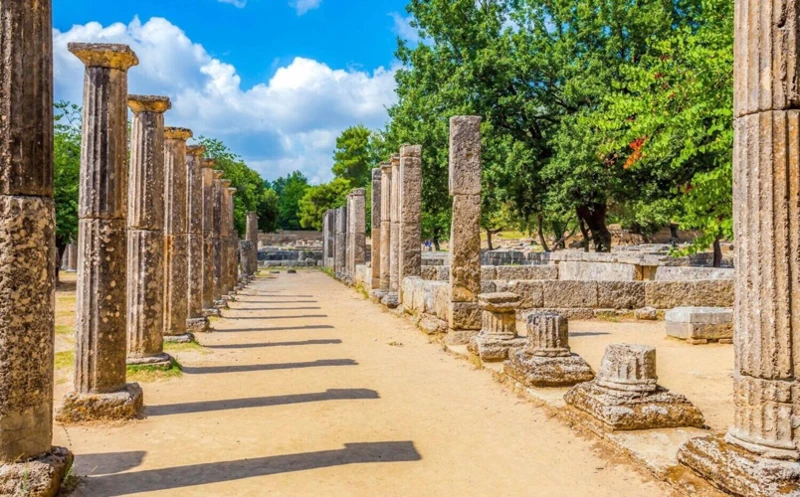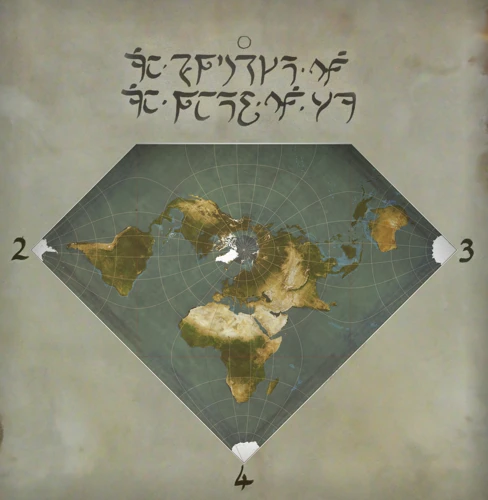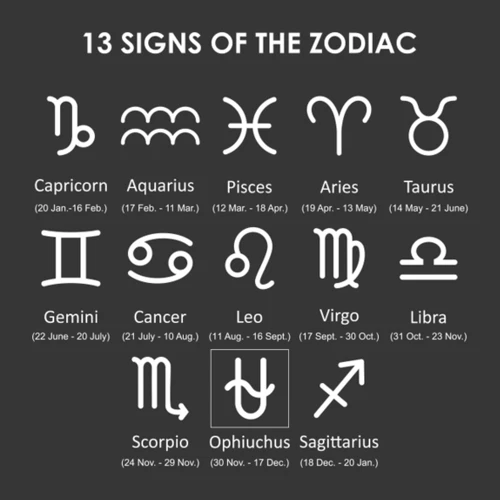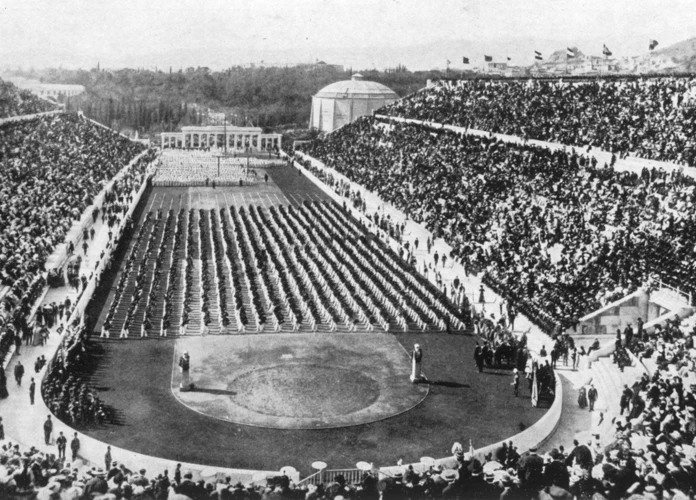The Olympic Games, an iconic global sporting event that brings together athletes from around the world, have a rich and storied history that spans thousands of years. From its origins in ancient Greece to its modern-day incarnation, the Olympics have captivated the hearts and minds of people across generations. This article delves into the fascinating journey of the Olympic Games, exploring their ancient roots, the revival of the modern Olympics, the event today, controversies and issues, as well as their lasting legacy and impact. Join us on this exploration of one of the world’s most celebrated and prestigious sporting events.
Contents
- Ancient Olympic Games
- The Revival of the Olympic Games
- The Olympic Games Today
- Controversies and Issues
- Legacy and Impact
- Conclusion
-
Frequently Asked Questions
- What was the prize for winning in the ancient Olympic Games?
- What role did women play in the ancient Olympic Games?
- What was the significance of the Olympic flame?
- How has the number of sports in the Olympic Games changed over time?
- Who is responsible for organizing the modern Olympic Games?
- What are some famous controversies in Olympic history?
- What is the economic impact of hosting the Olympic Games?
- What is the purpose of the Olympic Truce?
- How are host cities chosen for the Olympic Games?
- What is the cultural impact of the Olympic Games?
- References
-
Frequently Asked Questions
- When did the ancient Olympic Games first take place?
- Who was eligible to participate in the ancient Olympic Games?
- What events were included in the ancient Olympic Games?
- Did women compete in the ancient Olympic Games?
- Who is credited with reviving the modern Olympic Games?
- When and where did the first modern Olympic Games take place?
- How many sports are included in the modern Olympic Games?
- Who is responsible for selecting the host city for the Olympic Games?
- Are there any controversies associated with the Olympic Games?
- What is the legacy of the Olympic Games?
- References
- Read More
Ancient Olympic Games

In the ancient world, the Olympic Games held immense cultural and athletic significance. These Games, originating from the secluded valley of Olympia in Ancient Greece, were a testament to the human passion for physical prowess and competition. According to historical records, the origins of the Olympic Games can be traced back to the 8th century BCE, where they were dedicated to the Greek god Zeus. Taking place every four years, the ancient Olympics showcased a range of athletic events, including foot races, discus throwing, and wrestling. These competitions were not just about physical strength, but also embodied ideals of honor, excellence, and friendship. The ancient Olympics were much more than just a sports festival; they were a celebration of Greek culture, a symbol of unity, and a gathering of diverse city-states in the spirit of peaceful competition. The Olympic Games held immense cultural significance in ancient times, and their traditions and values continue to inspire athletes and spectators alike to this day.
Origins of the Olympic Games
The origins of the Olympic Games can be traced back to ancient Greece, specifically to the secluded valley of Olympia. According to historical records, these Games were first held in the 8th century BCE, making them one of the oldest sporting events in history. The ancient Greeks believed that the Olympic Games were created by the gods themselves, specifically by the mythical figure of Heracles (Hercules). The story goes that Heracles established the Games to honor his father Zeus, the king of the gods. Legend has it that Heracles marked out the first Olympic stadium and initiated the athletic events that would become the cornerstone of the Olympics. The Games were so significant in Greek culture that they were considered a religious festival, taking place in honor of Zeus every four years. During this time, a truce was declared among warring city-states, allowing athletes and spectators to travel to Olympia in peace. The ancient Olympics consisted of a series of athletic contests, attracting skilled athletes from various regions of Greece. It is important to note that in the beginning, the Olympic Games were solely for male participants, and married women were not allowed to attend the events. The origins of the Olympic Games reflect not only the Greeks’ fascination with physical competition but also their deep-rooted belief in the connection between sport and the divine.
Athletic Events
Athletic events were the heart and soul of the ancient Olympic Games. The competitions showcased a wide array of disciplines, highlighting the physical prowess and skills of the participating athletes. The athletic events spanned various categories, including track and field, combat sports, equestrian events, and chariot races.
In the track and field category, events such as sprint races, long-distance races, and relay races were held. These races were highly esteemed, with participants striving to achieve glory and honor for themselves and their city-states. The most prestigious and sought-after event was the stadion, a foot race that spanned approximately 192 meters.
Combat sports, including wrestling, boxing, and pankration, were also featured. Wrestlers engaged in intense grappling matches, while boxers showcased their skills in hand-to-hand combat. Pankration, a brutal combination of boxing and wrestling, allowed the use of various techniques such as punching, kicking, and joint locks, with the goal of subduing the opponent.
Equestrian events displayed the mastery of horsemanship, testing both the rider’s skill and the horse’s agility. Chariot races, another thrilling spectacle, involved high-speed races with chariots pulled by horses. These races demanded immense coordination, strength, and courage, as the contestants maneuvered their chariots around a designated track.
The variety of athletic events demonstrated the Greeks’ appreciation for physical ability and their belief in the importance of a sound body and mind. These competitions were not just displays of strength and skill but also embodied the values of fair play, sportsmanship, and the pursuit of excellence. The ancient Olympic Games were a true celebration of athleticism and showcased the best of what the human body and spirit could achieve.
Significance and Cultural Impact
The ancient Olympic Games held immense significance and had a profound cultural impact on the ancient Greek society. These Games were not merely athletic contests; they represented a blend of religion, sport, and politics. Being held in honor of Zeus, the king of the gods, the Olympics were considered sacred and were deeply ingrained in the religious traditions of the time. The Games provided a platform for city-states to showcase their power, wealth, and athletic talent, fostering a sense of pride and nationalism. Athletes who emerged victorious in the Games were revered as heroes and received great honor and recognition in their communities. The Olympic Games also played a crucial role in promoting peace and uniting different regions of Greece, as they brought together people from diverse backgrounds to compete in the spirit of friendly rivalry. The cultural impact of the Olympics extended beyond Greece, as it attracted visitors and participants from all across the Mediterranean region, creating opportunities for cultural exchange and diplomacy. The prestige and legacy of the ancient Olympics left an indelible mark on Greek society, influencing various aspects of their art, literature, and even political systems. The values of athleticism, fair play, and camaraderie that were celebrated in the ancient Games continue to resonate today, carrying forward the rich cultural heritage of the Olympic movement.
The Revival of the Olympic Games

After centuries of absence, the Olympic Games experienced a remarkable revival in the late 19th century, thanks to the efforts of French educator and historian Pierre de Coubertin. Inspired by the spirit of ancient Greece and motivated by the belief that sports could foster international peace and understanding, Coubertin tirelessly advocated for the restoration of the Olympic Games. His vision became a reality in 1896 when the inaugural modern Olympics took place in Athens, Greece. The modern Olympic Games embraced the spirit of the ancient Games while incorporating new sports and international participation. The revival marked a watershed moment in the history of sports, setting the stage for the world’s most significant international sporting event. The modern Olympics continue to captivate global audiences, providing a platform for athletes from different nations to compete and celebrate the power of human achievement, unity, and sportsmanship.
Pierre de Coubertin and the Modern Olympics
Pierre de Coubertin, a French educator and historian, played a pivotal role in the revival of the Olympic Games and the establishment of the modern Olympics. Inspired by the ancient Games and their potential to promote international understanding and cooperation, Coubertin dedicated himself to the revitalization of this global sporting event. In 1894, he founded the International Olympic Committee (IOC), which became the governing body for the Games. Coubertin firmly believed in the power of sport to foster peace and unity, and to promote physical education in schools. He tirelessly advocated for the importance of amateurism in sports and the inclusion of women in the Olympic movement. Coubertin’s efforts eventually paid off, and the inaugural modern Olympics were held in Athens in 1896, marking the beginning of a new era for the Games. His vision and passion for the Olympic Games laid the foundation for the international event we know today. The legacy of Pierre de Coubertin continues to be celebrated, and his contributions to the Olympic movement are a testament to the enduring power of his ideas and ideals.
Inaugural Modern Olympics: Athens 1896
The inaugural modern Olympics, held in Athens in 1896, marked a significant milestone in the revival of the ancient sporting event. Organized by French educator Pierre de Coubertin, the Athens Games brought together athletes from 14 nations to compete in a variety of sports. This historic event took place in the Panathenaic Stadium, a reconstructed ancient venue that captured the spirit of the original Olympics. The competition included nine different sports, including track and field, cycling, swimming, and gymnastics. The Games drew both excitement and skepticism, with some questioning the feasibility and success of reviving an ancient tradition. However, the Athens Olympics proved to be a resounding triumph, capturing the attention and imagination of the world. The event showcased the best athletic talents of the time and laid the foundation for the modern Olympic Games we know today. The success of the inaugural modern Olympics in Athens set the stage for the continued growth and evolution of the Games, solidifying their position as a global celebration of sport and unity.
Expansion and Evolution
The Olympic Games have undergone significant expansion and evolution since their revival in the modern era. Initially, the modern Olympics were a modest affair, with the first Games held in Athens, Greece in 1896. However, over the years, the Games grew in scale and global reach. In 1900, the Olympics expanded beyond its original host city, as Paris became the first city to welcome athletes from around the world. This marked the beginning of a trend where different cities across the globe bid to host the Games every four years. The International Olympic Committee (IOC) was established in 1894, taking charge of the organization and overseeing the expansion of the Olympics. The IOC played a crucial role in shaping the future of the Games, setting rules and regulations, introducing new sports, and making key decisions related to the hosting and management of the events. Throughout its history, the Olympics continued to evolve, adapting to the changing times and societal demands. Notably, the inclusion of women in various sports and the introduction of new disciplines such as snowboarding and BMX were significant milestones in the expansion of the Olympics. The Games also witnessed the integration of technology, with advancements such as electronic timing, doping controls, and high-definition broadcasting. The expansion and evolution of the Olympic Games have not only made the event more inclusive and diverse but have also elevated it to a global platform that brings together athletes from all corners of the world in the spirit of competition and camaraderie.
The Olympic Games Today

Today, the Olympic Games have evolved and expanded into a global phenomenon that brings together athletes from every corner of the world. Governed by the International Olympic Committee (IOC), the Olympics showcase a wide array of sports and disciplines, highlighting the pinnacle of human athletic achievement. The Games have become a symbol of international cooperation and unity, transcending political and cultural boundaries. Host cities and venues around the world are carefully selected to provide a stage for the world’s top athletes to compete, captivate audiences, and inspire future generations. From the stunning opening and closing ceremonies that depict the host country’s culture and heritage, to the exhilarating competitions that push athletes to their limits, the modern Olympic Games continue to captivate the world’s attention. The Games serve as a celebration of human diversity and the unifying power of sport, embodying the Olympic values of friendship, respect, and excellence.
International Olympic Committee (IOC)
The International Olympic Committee (IOC) plays a pivotal role in the organization and governance of the Olympic Games. Established in 1894 by Pierre de Coubertin, the IOC is responsible for overseeing and coordinating the modern Olympics. It consists of members from different countries who come together to uphold the principles and values of the Olympic Movement. The IOC’s main tasks include selecting host cities for upcoming Games, setting and enforcing rules and regulations for participating athletes, and promoting the Olympic ideals worldwide. One of the key responsibilities of the IOC is to ensure the integrity of the Olympic Games by addressing issues such as doping scandals and ensuring fair competition. Additionally, the IOC fosters international cooperation and diplomacy through sports by promoting peace and understanding among nations. The committee meets regularly to discuss various matters related to the Games and make important decisions for the future of the Olympics. Through its efforts, the IOC strives to maintain the legacy and spirit of the Olympic Games, inspiring athletes and spectators alike with the power of sport to unite people from all corners of the globe. For more information about the role of the IOC, you can visit this link.
Host Cities and Venues
The selection of host cities for the Olympic Games is a highly anticipated and competitive process. Each edition of the Games is awarded to a different city, allowing countries from around the world to showcase their culture and infrastructure on a global stage. Hosting the Olympics requires extensive planning and preparation, as cities must provide suitable venues and accommodations for thousands of athletes, officials, and spectators. The host city is responsible for constructing or renovating sports facilities that meet the stringent requirements set by the International Olympic Committee (IOC). These venues include stadiums, arenas, swimming pools, and various other sporting facilities. The host city also needs to ensure the availability of transportation networks, adequate lodging options, and other necessary infrastructure to support the influx of visitors during the Games. Some notable host cities throughout Olympic history include Athens, Beijing, London, Rio de Janeiro, and Tokyo. The Olympic Games provide an opportunity for host cities to not only showcase their capabilities but also to make a lasting impact on their local communities and leave behind a legacy of world-class sporting infrastructure.
Sports and Athletes
Sports and athletes are at the heart of the Olympic Games, showcasing the pinnacle of physical prowess and skill. The modern Olympic Games feature a wide array of sports, with the program continuously evolving and expanding. From athletics to swimming, gymnastics to archery, there is a sport for every type of athlete to compete in. The Olympic Games provide a platform for athletes to represent their countries and showcase their talents on a global stage. The competition is fierce, with athletes training for years to qualify and perform at their best. Olympians push the boundaries of human performance, inspiring millions around the world. The Games also promote gender equality, with both male and female athletes competing side by side in their respective sports. Additionally, the Paralympic Games provide a platform for athletes with disabilities to showcase their incredible skills and determination. The Olympics not only celebrate individual excellence but also foster a sense of camaraderie and sportsmanship among competitors. It is a tribute to the power of sports to unite people from different backgrounds and cultures. Whether it’s the intensity of the track and field events or the precision of the shooting competitions, sports and athletes are the heart and soul of the Olympic Games.
Opening and Closing Ceremonies
The Opening and Closing Ceremonies of the Olympic Games are spectacular events that showcase the host country’s culture, heritage, and artistic creativity on a global stage. These ceremonies are a captivating blend of music, dance, theater, and technology, aiming to captivate and inspire audiences worldwide. The Opening Ceremony marks the commencement of the Games and is typically filled with grandeur and symbolism. It often includes a procession of participating nations, where athletes proudly parade into the stadium carrying their national flags. This procession is followed by the lighting of the Olympic cauldron, a highly symbolic moment that signifies the start of the Games. The Closing Ceremony, on the other hand, serves as a bittersweet farewell to the Games. It features performances that highlight the host country’s culture, paying tribute to the athletes, and celebrating the achievements and unity of all participating nations. The Closing Ceremony also includes the extinguishing of the Olympic flame, symbolizing the end of the Games. These ceremonies serve as powerful reminders of the Olympic spirit and serve as a platform for creativity and cultural exchange. They leave a lasting impression on both the athletes and spectators, making the opening and closing ceremonies an integral part of the Olympic experience.
Controversies and Issues

Controversies and issues have always been a part of the Olympic Games, as such a massive international event inevitably encounters challenges along the way. One of the recurring controversies is doping scandals, where athletes use performance-enhancing drugs to gain an unfair advantage. Instances of doping have tarnished the integrity of the Games, leading to disqualifications, suspensions, and loss of medals. Additionally, political boycotts have played a role in creating tension and divisiveness. In an attempt to make political statements, certain countries have boycotted the Games, resulting in reduced participation and diminished global unity. The environmental impact of hosting the Olympics has faced scrutiny. The construction of massive stadiums and infrastructure, as well as the carbon footprint generated by millions of spectators and athletes, raises concerns about sustainability and ecological responsibility. These controversies and issues are a reminder that organizing an event of this magnitude is not without its challenges, and they highlight the need for continuous improvement and vigilance in upholding the values and spirit of the Olympic Games.
Doping Scandals
Doping scandals have been a dark cloud hanging over the Olympic Games in recent years, tarnishing the reputation of many athletes and undermining the principles of fair play and integrity. These scandals involve the use of banned substances or methods to enhance an athlete’s performance, providing them with an unfair advantage over their competitors. The pursuit of glory and the pressure to succeed has led some athletes to resort to illegal means, jeopardizing their own health and the spirit of the Games. Doping scandals have shaken the world of sports, with high-profile cases and revelations exposing the extent of the problem. The International Olympic Committee (IOC) and various sports federations have implemented stringent testing protocols and anti-doping measures to combat this issue. However, new substances and undetectable methods continue to emerge, making it an ongoing challenge to maintain a level playing field. The fight against doping is crucial to protect the integrity and credibility of the Olympic Games, ensuring that athletes can compete on a fair and equal basis. Efforts to eradicate doping and enforce strict anti-doping regulations continue to evolve, with the hope of preserving the true spirit of the Games and upholding the values of sportsmanship and honesty.
Political Boycotts
Political boycotts have been a recurring issue in the history of the Olympic Games. These boycotts occur when a country or group of countries decides to abstain from participating in the Games due to political tensions or disagreements. One notable instance of political boycotts took place during the height of the Cold War between the United States and the Soviet Union. In 1980, the United States led a boycott of the Moscow Olympics in protest of the Soviet invasion of Afghanistan. As a result, 65 countries joined the boycott, making it the largest boycott in Olympic history. Four years later, the Soviet Union retaliated by leading a boycott of the Los Angeles Olympics in 1984, with 14 countries following suit. Other instances of political boycotts include South Africa’s exclusion from the Games due to apartheid policies and North Korea’s withdrawal from the 1964 Tokyo Olympics. These boycotts not only deprived athletes of the opportunity to compete on the biggest stage, but also highlighted the tense political climate in which the Olympic Games sometimes find themselves. Despite the controversies surrounding political boycotts, the Olympic Games have strived to remain a symbol of unity and friendly competition among nations, even in the face of adversity.
Environmental Impact
The environmental impact of the Olympic Games is a significant aspect that has gained attention in recent years. Hosting such a massive event requires extensive construction, infrastructure development, and transportation, which can have detrimental effects on the environment. The construction of stadiums, arenas, and Olympic villages often leads to deforestation and the destruction of natural habitats. Additionally, the increasing demand for energy and water during the Games puts pressure on local resources and contributes to increased greenhouse gas emissions. To mitigate these impacts, efforts have been made to incorporate sustainability measures into the planning and execution of the Games. For example, in recent years, there has been a focus on constructing temporary structures that can be reused or repurposed after the event, reducing the overall environmental footprint. Additionally, steps have been taken to promote recycling, reduce waste, and implement energy-efficient practices. Some host cities have also utilized renewable energy sources and implemented eco-friendly transportation systems to minimize the carbon footprint. However, despite these efforts, there are still concerns about the long-term environmental effects and whether the temporary measures taken during the Games are sustainable beyond the event itself. The organizing committees and the International Olympic Committee (IOC) continue to work towards finding innovative solutions to minimize the environmental impact of the Olympic Games and leave a positive legacy for future generations.
Legacy and Impact

The legacy and impact of the Olympic Games extend far beyond the realm of athletics. The symbolism and traditions associated with the Games have become deeply ingrained in our global culture. One of the most recognizable symbols is the Olympic rings, representing the unity of the five continents. These rings have transcended borders and languages, becoming a universal emblem of peace, friendship, and sportsmanship. The Games have had a profound social and economic impact on host cities and countries. They provide an opportunity for infrastructure development, job creation, and tourism promotion. The Olympic Games serve as a catalyst for urban renewal and can leave lasting improvements in transportation, accommodations, and sporting facilities. They inspire young athletes to pursue their dreams and serve as role models for generations to come. The Olympic Games have left an indelible mark on our world, fostering international understanding, promoting healthy competition, and leaving behind a legacy of unity and inspiration.
Olympic Symbols and Traditions
Olympic Symbols and Traditions are an integral part of the modern Olympic Games, representing the shared values, ideals, and heritage of this historic event. One of the most recognizable symbols is the Olympic rings, consisting of five interlocking rings in different colors: blue, yellow, black, green, and red. These rings symbolize the unity of the five continents and the coming together of athletes from around the world. Additionally, the Olympic torch relay is a cherished tradition that showcases the journey of the Olympic flame from Olympia, Greece, to the host city. The torch is carried by a series of runners, often starting with a torch lighting ceremony at the Temple of Hera in Olympia. The flame is then passed from one runner to another until it reaches the main stadium during the opening ceremony. This tradition connects the modern Games with their ancient roots and symbolizes the passing of the Olympic spirit from one generation to the next. The awarding of gold, silver, and bronze medals at the Olympics has become a cherished tradition. These medals not only honor the outstanding athletic achievements but also represent the values of excellence and competition. The playing of the Olympic anthem and the raising of the host country’s flag during the medal ceremony further add to the ceremonial and symbolic significance of these awards. The Olympic creed and oath, recited by athletes and officials, serve as a reminder of the values of fairness, respect, and sportsmanship that underpin the Games. These symbols and traditions enhance the unity, heritage, and grandeur of the Olympic Games, making them a global celebration of athleticism, peace, and camaraderie.
One of the most significant aspects of the Olympic Games is the social and economic benefits it brings to the host city and country. The hosting of the Olympics provides a platform for social and cultural exchange, fostering global understanding and unity. Nations have the opportunity to showcase their culture, traditions, and values to the world, promoting tourism and encouraging international cooperation. The influx of visitors during the Games stimulates the local economy, creating job opportunities and boosting sectors such as hospitality, transportation, and retail. The construction of state-of-the-art venues and infrastructure for the Olympics not only leaves a lasting legacy for the host city but also drives urban development and improves the quality of life for residents. The legacy of the Games extends beyond the sporting event itself, with new facilities being used for recreational purposes and future international events. Additionally, hosting the Olympic Games often acts as a catalyst for social and environmental improvements as well. The attention and focus on sustainability during the Games can inspire sustainable practices and raise awareness about the importance of environmental conservation. The social and economic benefits of hosting the Olympic Games are far-reaching, leaving a positive and lasting impact on the host city and its residents.
Conclusion

The conclusion of the Olympic Games: From Ancient Greece to the Modern Era brings us to the realization that this global sporting event has left an indelible mark on the world. It has evolved from its humble beginnings in ancient Greece to become a symbol of unity, competition, and sportsmanship on a global scale. The Olympics have showcased incredible athletic achievements and brought people together from different nations, cultures, and backgrounds. As we reflect on the history and impact of the Olympic Games, it is clear that their legacy extends beyond the realm of sports. Olympic symbols and traditions, such as the Olympic rings and the lighting of the Olympic flame, have become iconic representations of the Games. Additionally, the Olympics have generated significant social and economic benefits for host cities, providing opportunities for infrastructure development, tourism, and international exposure. However, the Games have not been without their controversies and issues. Doping scandals have cast a shadow over some competitions, while political boycotts and environmental concerns have raised important questions about the responsibilities and impacts of hosting the Olympics. Despite these challenges, the Olympic Games continue to inspire and captivate audiences worldwide, serving as a platform for athletes to achieve greatness and for nations to come together in friendly competition. Ultimately, the Olympic Games are a testament to the power of sport to transcend borders and unite people in the pursuit of excellence and harmony.
Frequently Asked Questions

What was the prize for winning in the ancient Olympic Games?
In the ancient Olympic Games, the prize for winning was not a medal as it is today. Instead, victorious athletes were awarded with a simple olive wreath, also known as a kotinos. This wreath symbolized honor and glory.
What role did women play in the ancient Olympic Games?
Unfortunately, women were not allowed to participate as athletes in the ancient Olympic Games. Married women were forbidden from even attending the games. However, there were separate events called the Heraean Games held in Olympia specifically for unmarried women.
What was the significance of the Olympic flame?
The Olympic flame is a powerful symbol of the Olympic Games. It represents the continuity between the ancient and modern Olympics. The flame is lit using a parabolic mirror and the sun’s rays in Olympia, Greece, and is then carried to the host city of the modern Olympic Games.
How has the number of sports in the Olympic Games changed over time?
The number of sports included in the Olympic Games has changed significantly over time. In the early years of the modern Olympics, there were only a handful of sports. However, the number has grown steadily, and now there are over 30 sports represented in the Summer Olympic Games and 7 sports in the Winter Olympic Games.
Who is responsible for organizing the modern Olympic Games?
The modern Olympic Games are organized by the International Olympic Committee (IOC). The IOC is responsible for selecting the host cities, overseeing the planning and execution of the games, and ensuring that the Olympic Charter is followed.
What are some famous controversies in Olympic history?
One famous controversy in Olympic history is the 1972 Munich Olympics massacre, where members of the Israeli Olympic team were taken hostage and eventually killed by a Palestinian terrorist group. Another notable controversy is the doping scandal involving Russian athletes during the 2014 Sochi Winter Olympics.
What is the economic impact of hosting the Olympic Games?
The economic impact of hosting the Olympic Games can vary. While hosting the games can bring economic benefits such as increased tourism and infrastructure development, the costs of hosting can also be substantial. It is crucial for host cities to carefully manage their budget and plan for the long-term utilization of the infrastructure built for the games.
What is the purpose of the Olympic Truce?
The Olympic Truce is a tradition that dates back to ancient Greece. It was a temporary ceasefire between warring city-states to ensure the safe travel of athletes, officials, and spectators to the Olympic Games. Today, the Olympic Truce aims to promote peace and reconciliation during the modern Olympic Games.
How are host cities chosen for the Olympic Games?
Host cities for the Olympic Games are chosen through a bidding process. Countries interested in hosting submit detailed proposals outlining their plans for hosting the games, including infrastructure, transportation, venues, and legacy plans. The International Olympic Committee evaluates these proposals and selects the host city through a voting process.
What is the cultural impact of the Olympic Games?
The Olympic Games have a significant cultural impact. They bring people from different nations and backgrounds together, promoting cultural exchange and understanding. The Games also showcase the host country’s culture through the opening and closing ceremonies, allowing them to share their traditions, music, and art with the world.
References
- Olympic Games | History, Locations, & Winners
- The Olympic Games: Locations, Facts, Ancient & Modern
- Olympic games (article) | Ancient Greece
Frequently Asked Questions

When did the ancient Olympic Games first take place?
The ancient Olympic Games began in 776 BC.
Who was eligible to participate in the ancient Olympic Games?
Only free-born Greek men were eligible to participate in the ancient Olympic Games.
What events were included in the ancient Olympic Games?
The ancient Olympic Games featured various athletic events such as foot races, wrestling, boxing, chariot races, and discus throwing.
Did women compete in the ancient Olympic Games?
No, women were not allowed to compete in the ancient Olympic Games. However, there were separate festivals and competitions for women called the Heraean Games.
Who is credited with reviving the modern Olympic Games?
Pierre de Coubertin is credited with reviving the modern Olympic Games.
When and where did the first modern Olympic Games take place?
The first modern Olympic Games took place in Athens, Greece in 1896.
How many sports are included in the modern Olympic Games?
The modern Olympic Games include a wide range of sports, with the number varying from one edition to another. As of now, there are around 50 different sports.
Who is responsible for selecting the host city for the Olympic Games?
The International Olympic Committee (IOC) is responsible for selecting the host city for the Olympic Games.
Are there any controversies associated with the Olympic Games?
Yes, the Olympic Games have faced controversies such as doping scandals, political boycotts, and concerns about the environmental impact of hosting the Games.
What is the legacy of the Olympic Games?
The Olympic Games have left a lasting legacy, contributing to the development of sports, promoting international cooperation, and leaving a cultural and economic impact on host cities.







